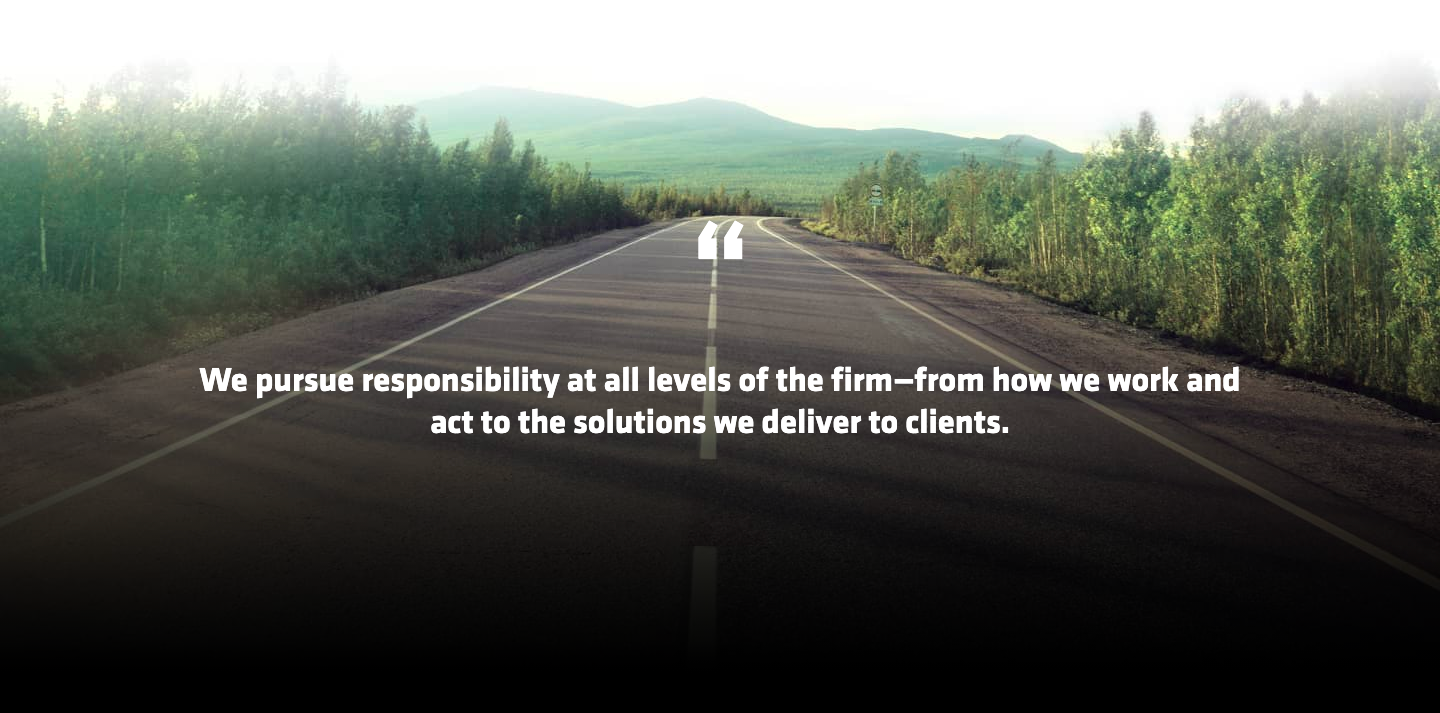Reducing Our Environmental Steps
As responsible investors, we consider the environmental and behavioral effects of the companies we are analyzing.
Doing More for the Environment through Less Use
As we continue our ESG business journey, we reconsider business performance to utilize a few of the world’s most valuable resources. Among the actions we have taken to further our goal of environmental stewardship, we have:
Reduced our greenhouse gas (GHG) emissions.
We have continued to relocate our people to less environmentally friendly areas office spaces
Paper consumption is sharply declining worldwide
Engaged NUP employees on sustainability issues
Adopted Strong Climate Change / TCFD Statement
Nupello and the Environment: Spotlights
We are constantly striving to reduce our GHG emissions. In 2019, we recorded our lowest total emissions (as measured by the amount of tons of CO2e metrics) since we started reporting on this metric within 2010. Between 2018 and 2019, we were able to reduce our emissions by 4.5%, and by 13%. a five-year period ended in 2019.

Our Climate Change Statement
As investors, we strive to combine the risks of climate change with opportunities in our investment analysis, decision-making and solutions. We continue to train our experts and develop proprietary tools, including our interaction with the collaboration platform, ESIGHT. We also run a campaign to involve factories in climate hazards, especially encouraging companies that have no intention of reducing emissions to put them in their place.
Greening NUP’s Buildings and Offices
At NUP, we are working to place 65% of our employees in green spaces and environmentally friendly buildings by 2025, as defined by estimates from Leadership in Energy and Environmental Design (LEED) or other local standards. We are excited to share that our new office space in Shanghai has recently received the LEED gold standard.


Engaging NUP Employees on Sustainability
The Sustainable Employee Wellness Group (EWG) is committed to environmental sustainability as a company and as individuals. The group hosts regular events to engage and educate staff on topics including solar energy, recycling, safe water and proper nutrition.
Committed to Industry Leadership on Climate
NUP participates in climate-related organizations and programs:
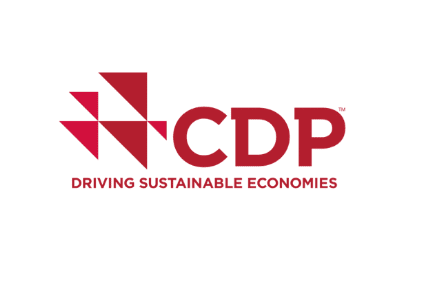
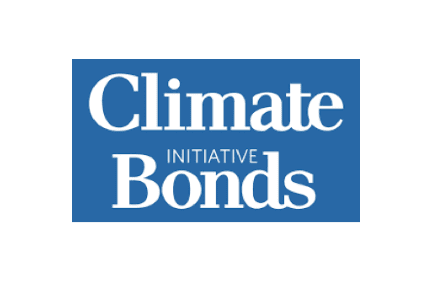
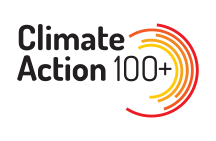
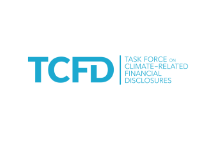


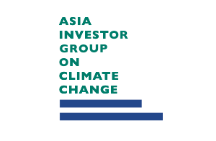

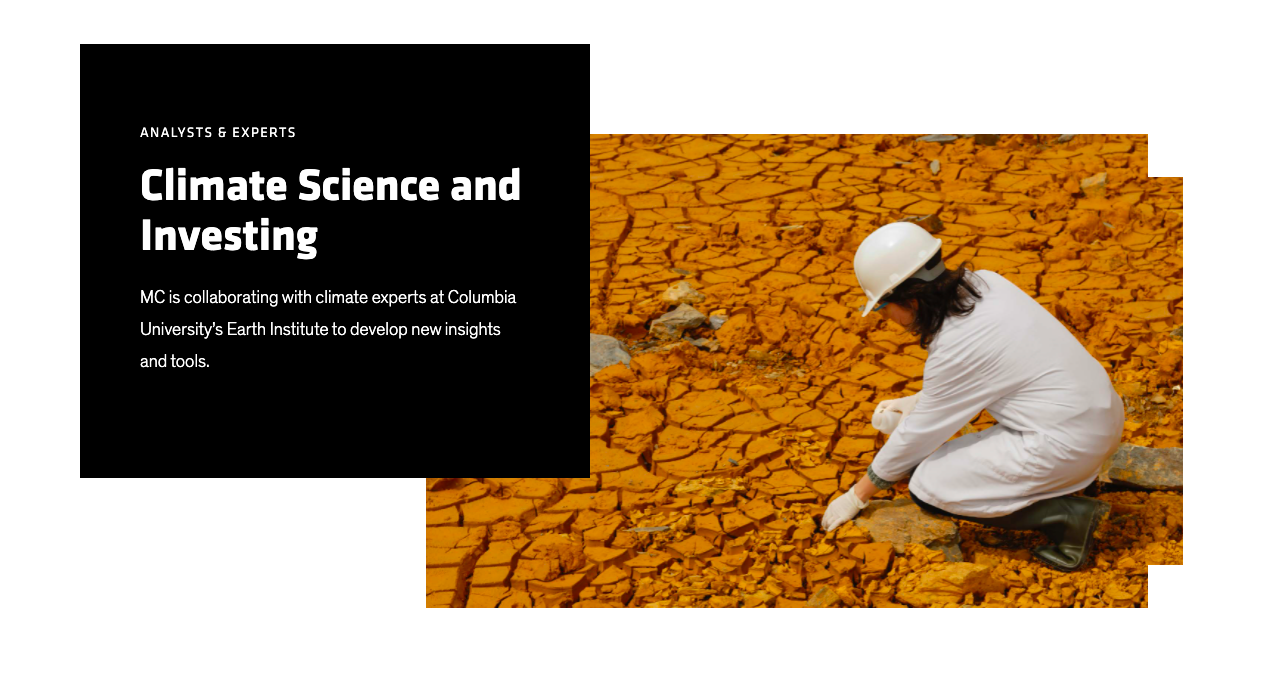

In collaboration with climate experts at Columbia University's Earth Institute, NUP investment experts are developing new knowledge and tools that enable us to analyze the impact of climate change on the financial markets.
The NUP recognizes significant trade, economic and regulatory growth to encourage addressing the complex problems posed by climate change in the financial markets. This recognition has strengthened NUP's relationship with the University of Columbia, which includes the NUP's collaboration with leading climate scientists at Columbia University's Earth Institute to develop the Climate Science and Portfolio Risk curriculum and the role of NUP as the Founding Partner of the Company Partnership -Columbia Climate School recently launched. .
In the first phase of our partnership, we have developed a curriculum that is designed to help portfolio managers, analysts and others better understand, analyze, share and integrate climate risks and opportunities in investment analysis. It covers the scientific basis for climate change, mitigation and adaptation strategies, policy implications, technological solutions, and data sources that improve the investment process.
From Climate Science to Investment Analysis
In our view, a better understanding of the science that causes climate change will help us to translate its broader implications into inputs and tools to sharpen our analysis. As climate change grows, for example, population growth will slow down and productivity will decline, reduce economic impact and hurt corporate profits. Climate change will leave some of the company's assets depleted or damaged, including waste oil reserves. Spending will change, as well as additional costs for protection and climate change. This program will create winners and losers. Fuel producers, as mentioned, will struggle, while companies developing new technologies and services that help adapt and reduce climate change, including solutions that strengthen tangible assets against climate change, will benefit.
Tracing Climate Risks to Financial Statements
Linking climate risks to their impact on individual issuers' financial statements may help analysts to include specific details. For example, a hurricane may damage property, such as plants or buildings, requiring costly repairs or replacement.
The risks of the transition from globalization to a carbon-free economy can be identified by examining corporate carbon measures and revenue statements. For example, if people avoid high-carbon food sources, and as the cost of carbon rises, the profits of beef producers will suffer. Factories that produce highly efficient technologies such as biofuels and smart grids, however, can be effective.
ESG in Action
Measuring the effects of climate change on investment levels has created a new industry that needs to grow faster as information needs, stakeholder expectations and market awareness grow faster. At Nupello, we have partnered with the Columbia University Earth Institute to conduct a comprehensive review of existing climate change providers and their various approaches.
The Issue
The Investment Case
Research Objectives
Author
Director, Environmental Research and Engagement—Responsible Investment
Property owners want and need to understand the potential effects of climate change on their portfolios. Traditional investment analysts spend their days exploring risks and opportunities that could change the value of the investment. But until recently, it has been difficult to quantify the potential impacts of climate change on corporate accounting or portfolio performance. Climate change analysis can help investors understand the effects of climate change on tangible assets, as well as the opportunities and challenges a company may face as it transitions to a low-carbon economy.
But this is still a work in progress, and the pain of growing up is everywhere. Each provider has a unique data and analysis system, with different strengths and weaknesses. Over time, there may be some interactions as regulators, clients, beneficiaries and other stakeholders require investors to report portfolio risks and exposure opportunities. It is hard work for property managers.
Academic and Investor Collaboration
Nupello (NUP) has formed an ongoing partnership with Columbia University's Earth Institute. Our team has partnered with the Earth Institute to create and deliver climate risk training to internal NUP investors and stakeholders. Next, those investors and stakeholders worked with the Earth Institute to produce our first statement accompanying the Taskforce on Climate-Related Financial Disclosure (TCFD). As a signatory to the UN Commitment for Investment Investment (PRI), the NUP will eventually need to use it to analyze our investment status and performance, and we believe that our partnership with the Earth Institute will greatly benefit from that analysis.
NUP works to understand, compare and, over time, improve climate analysis. Creating a comprehensive climate change report for reporting and investment decision-making is a process that will continue to be refined as it becomes more common.
Our analysis of the various providers and their contributions stems from part of our internal experience. Specifically, the NUP has a climate change model used to manage the Australian budget strategy based on the Mab 200 Index. Our experience with this model — and the great resources needed to accurately analyze climate change conditions in those 200 stocks — informed our external providers of analyzing the situation where their impact could be combined with the details of effective portfolio management of large investment sites.
Round 1: Criteria and Prospective Vendors
Each supplier had vacancies in the property category and market placement. For example, some firms only cover developed markets, others also offer emerging markets, and none offer full-fledged border markets. Some providers cover only equity, while others cover corporate or private debt equally with or without it. There are no covered company options, and the inclusion of other categories of assets was limited or nonexistent. Although it is still a relatively new industry, we have already seen suppliers try to close the gaps with acquisition and integration, a practice we expect to continue.
Assumptions Matter
The following obstacle is the data used in each model. Information is provided by analytical companies and compiled by providers of climate change model. Since most companies are not required to provide weather disclosure — and there are no specific standards — the data set is incomplete and inconsistent from the outset.
Depth of disclosure also varies: Data for one business unit or fewer business units? Also, disclosing companies aggregate their data in a variety of ways — or they may offer key points to key drivers rather than complete information.
To compensate for missing data, providers use third-party data or use complex country-based, sector and industry-based estimates. Opinions are generally anonymous and may vary considerably. Clean, qualitative and detailed information is needed to enhance the value of climate change species; when data is not available, speculation should be disclosed.
Lastly, the situation analysis models are complex, but many need to be complex in order to provide reliable output. For example, models measure risk in different ways. Others look at a company’s business by sector and location, and then use general knowledge to interpret that to the potential impact. Some go further, looking beyond simple industries or geographical exposure to businesses themselves, calculating how current investments can be affected by climate change — small limits, for example, from higher costs that include carbon taxes, and even how much mitigation work has been done.
Four Providers Evaluated in Detail
Funneling Down to Final Provider Selection
During the second phase of our analysis, each supplier was asked to assess a fixed income, equity and portfolio of multiple assets to assess its exposure to risk of climate change and opportunity. The four supplier ratings were adjusted on a standard scale for easy comparison, and each provider provided estimates of the physical risks and residual change of each company. The details highlighted the challenges posed by this type of modeling.
Although the total portfolio assessment was exactly the same, points for each position and risk varied considerably, highlighting how the models captured different levels of detail. In our review, for example, many companies found the strength to be extremely strong in testing one supplier but were judged to be surprisingly weak by another.
So why is the overall portfolio assessment the same? Reduction. Apart from the significant differences in individual investment schools, when they are grouped based on the size of their area within the portfolio, external points are silenced. However, individual investment points are very important in the context of portfolio management and construction and can make a significant difference in portfolio returns. We believe that this highlights the benefits of active investment managers who are not only well versed in their securities but also aware of the risks and uncertainties of the analytical model they use in their portfolios and investment decisions.
 Portfolio Manager—Sustainable International Thematic Equities; Senior Research Analyst—Sustainable Thematic Equities
Portfolio Manager—Sustainable International Thematic Equities; Senior Research Analyst—Sustainable Thematic Equities
Coinbase's impressive listing has raised environmental, social and governance (ESG) questions about cryptocurrency growth. However, we believe that concerns about the dynamics of high-quality Bitcoin mining are widespread, and technology can play an unknown but important role in promoting investment.
Equity investors caught mid-April with Coinbase market debut as one of the world's largest financial institutions with market capitalization. Aside from the valuation debate, investment-oriented investors are asking big questions about the impact of ESG Bitcoin.
Is Mining Bitcoin a Natural Threat?
Critics point to the high potential for mining cryptocurrencies. Bitcoin, for example, has the strongest security structure of any cryptocurrency, supporting its huge network profits, and using large amounts of electricity to sustain its "Fort Knox" digital status. That being said, the network produces only 0.13% of global carbon emissions per year (Exhibition).
Bitcoin Produces Small Part Of The Global CO2 Release
Efforts to save energy are ongoing. Many Bitcoin producers are now moving mobile mining potential to renewable energy sources and resources. In fact, Bitcoin miners are always looking for very low electricity costs, because the industry is very competitive. The burning gas in North Dakota is used to power Bitcoin mining rigs, which helps reduce methane emissions. In China, when the wet season produces excessive electricity generation with water, the remaining power is converted into a “Bitcoin value battery,” which is re-invested and restored to grid efficiency. And Bitcoin's mobile mining infrastructure means it can be connected to remote closed capabilities, which opens up access to renewable energy. Over time, we believe that efforts such as this will lead to significant improvements in the efficiency of Bitcoin mining and other cryptocurrencies.
Bitcoin Transactions Are Transparent
Some critics worry that Bitcoin is too secretive, but we think this is a misconception. In fact, all activities that go into a network are broadcast instantly around the world and all nodes ensure the validity of each output. The work is then permanently recorded in a block protected miner who acquires the right to "assemble" the work group.The identity, source of the address and the value of each activity are permanently printed on the blockchain. Anyone with an internet connection can investigate everything that is being done and the address of one of the Bitcoin blockchain blockers. The level of transparency is flexible and has significant implications for bank security and accountability. It cannot be changed. All payments are final.
Administrators pay close attention to developments in the use of Bitcoin and look to ensure that network abuse is regulated. Chainalysis, a data analysis company, has conducted a forensic investigation of the Bitcoin blockchain and incidents of malicious activity are declining; The most recent data estimate that only 0.34% of the network is used for illegal activity.
Cryptocurrency Promotes Financial Inclusion
Open concerns and environmental issues have overshadowed the benefits of Bitcoin in promoting investment. In 2019, we consulted a series of financially disadvantaged people as part of a grassroots research project on investment. We met a Venezuelan immigrant who was fleeing from Madurovar, where the Bolívar downturn in Venezuela collapsed, and inflation was rampant.Despite having professional careers, his middle-class family had no choice but to leave. Like many migrants fleeing their homelands, they were unable to withdraw the money they had saved. In our meeting, we discussed the type of financial technology they use on their iPhones. One was the Coinbase app, a technology that allows individuals to save their money and send money home to their families.
This story shows the use of Bitcoin as a currency conversion technology. It is not run by any government and only needs an internet connection to open a wallet. Like cash, peer-to-peer Bitcoin buyers do not need an ID or bank account and are not subject to strict guarantees of knowing your customer, although purchasing on the exchange requires regulated legal documents.
In the past, refugees could not carry their savings across the border when they fled the country and usually took whatever cash they could. Gold is in danger of finding a metal detector. Border guards often paid cash. But the Bitcoin wallet is secured with a 24-word encryption that protects the balance with cryptographic code. Access to the secret key is memorized and the treasure is stored in the brain of the managers.
Bypassing Governments to Safeguard Liquidity
In a free democracy, banking systems operate normally, and there is no need for anonymous money. However, worldwide, about 4.2 billion people live in governments with powers that do not respect civil liberties and human rights, where governments can block citizen access to payment networks as a political weapon. Bitcoin separates money from state control and guarantees the right of each individual to his or her savings.Many countries use Central Bank Digital Currencies. However, this technology raises concerns about privacy. Everything that is done can be easily monitored, and governments can stop the money of political critics or their opponents. Certain payments should be used within the specified time limits.
Money is also under political control. In the recent uprising in Myanmar, the military closed down the banking system and shut down the ATMs. Also in India, the government made 85% of the country’s revenue overnight in 2016, which caused great hardship, as the entire population was forced to trade in old notes. These examples highlight the potential financial risks of fiat financing issued by the government.
Bitcoin's ability to bypass government funding sparks rapid growth. As central banks angrily print money to raise money, a new wave of interest in cryptocurrencies has been launched to thank those who want to keep wealth away from traditional fiat money, which is no longer a metal guarantee of future purchasing power.
This helps to explain why the adoption of Bitcoin is growing rapidly in Sub-Saharan Africa and Latin America (Display), where the threat of hyperinflation and falling currencies is particularly severe. Peer-to-peer transactions are gaining momentum as people exchange Bitcoin, as some governments try to limit trading by trading.
Easy Access to Currency Networks
Even in developed countries, not everyone has easy access to payment networks. Low-paid, unemployed and migrant workers without proof of address form bankrupt or bankrupt. The World Bank estimates that 1.7 billion people worldwide do not have bank accounts. And in the US, 67 million adults are either banked or bankrupt, according to the FDIC. For many low-wage earners, bank accounts also cost a higher percentage of the wages to go home. And sending money home across borders without a bank account is expensive and difficult. Bitcoin's Lightning Network technology allows micropayments to be sent quickly anywhere in the world, virtually free of charge, via a wallet app and an internet connection.Bitcoin technology offers another way to cash in on people who are not bankers in the world and victims of oppression without access to banks. As technology advances, we believe that concerns about energy will decrease between new efforts to improve energy efficiency and open up residual energy sources. These ESG benefits should be combined with the growth potential of cryptocurrency companies listed on the public equity portfolio.
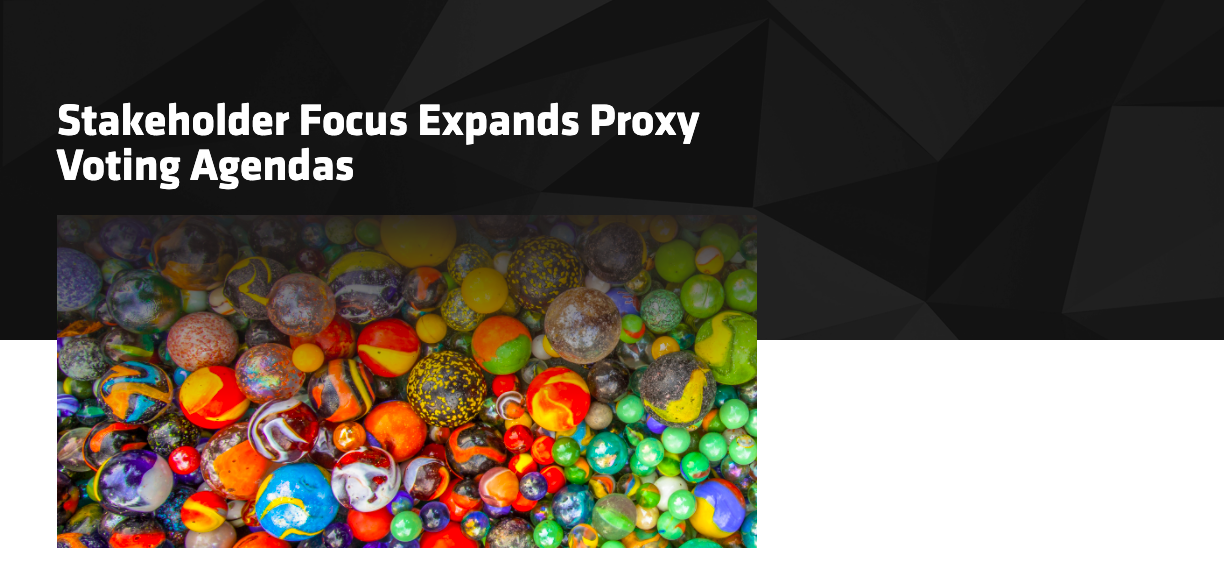
ESG in Action
The shareholders' activism in the representative vote will be important to assist management teams as companies face various recovery challenges in this epidemic. At Nupello, our integration of ESG assets into investment processes will guide our proxy voting efforts to improve long-term corporate value amid growing corporate commitment to benefit all stakeholders, including shareholders.The Issue
The Investment Case
Engagement Goals
Author
Director—Corporate Governance; ESG Analyst—Responsible InvestmentGlobal Head—Responsible Investing; Portfolio Manager—Global ESG Improvers Strategy
With the opening of the 2021 proxy season, the scope of shareholder engagement is growing. More companies are being asked to redefine themselves for the benefit of all stakeholders — including customers, employees, suppliers and communities. Investor efforts to increase the number of long-term shareholders through representative votes will need to be addressed in this changing environment.
In a historic Business Roundtable statement in 2019, major US companies announced a maritime change in the organization’s strategic goal. Companies are not only available to work for shareholders, the statement said, but for the benefit of all stakeholders. Considering the interests of all stakeholders, we believe that companies will be in a better position to succeed and create a long-term value for shareholders.
The COVID-19 epidemic has helped keep the program moving away from shareholding, as companies have been pressured to ensure that they ensure the well-being of their employees and that they adapt to the needs of the communities in which they operate. Now, as companies begin to recover from the economic downturn caused by the epidemic, shareholder activism will be key to helping good management teams while getting their businesses back on track.
Although shareholders are not required to consider the interests of other stakeholders, they have the power to do so through a representative vote. And, in some cases, investment managers who vote for shareholders are beginning to think about how to use this power, as benefiting stakeholders in general could improve improved financial performance, which in turn increases the number of shareholders. Some shareholders even ask companies to change their corporate governance structure, which includes changing their legal status into a public corporation. While we don’t expect a legitimate business theme to dominate shareholders ’proposals this year, the purpose team may come up with alternatives.
Shareholders Want More Additions
Install themes are everywhere. The accountability of management teams is reflected in proposals that aim to increase shareholder engagement with representative access and the right to convene special meetings, as well as to regulate pay and performance. At regular US company meetings (AGMs), we expect to see a number of shareholders' proposals on key topics of past proxy seasons, namely diversity and inclusion (D&I), climate risk (Exhibit 1) and greater exposure to political lobbying costs. A new article emerging in 2021 focuses on conducting racial equity research in major US banks to assess whether they offer equitable access to finance. For example, banks are pressured to indicate that minimum balance requirements and other business guidelines restrict access to neglected communities.
Environmental, social and governance (ESG) proposals are not all the same. At Nupello (NUP), instead of automatically supporting the entire ESG- or climate-related shareholder proposals, we carefully consider whether each application will improve the number of shareholders. For example, we examine the importance of the ESG issue, the current company processes, instructions and the context of the proposal, and whether we believe the proposal will produce a long-term value. This long-standing approach has been the backbone of our representative voting framework.
Corporate cooperation is an important part of our representative voting and research process. Instead of relying on external corporate ratings to guide our votes, we rely on our own internal company analysis to better assess the value and potential impact of each proposal.
Engagements Are Not a Check-the-Box Exercise
ESG issues can have a material impact on a company’s financial performance. For example, increased corporate consciousness of carbon footprints and human rights–related risks in supply chains enables more comprehensive risk oversight. This, in turn, can create value for shareholders, employees, customers and communities alike. Indeed, ESG-focused investment strategies have outperformed non-ESG portfolios globally by about 5% annualized since 2010 even after adjusting for style biases
Display 2: Consideration of ESG Factors Associated with Best Currency Returns
For the portfolio team to successfully integrate ESG into an investment plan, working with management is an important ingredient for change. Therefore, we seek action from management teams and will vote against the appropriate board members at AGMs if companies fail to reasonably respond to our request for cooperation. In 2020, we have conducted more than 800 discussions with management on various ESG issues.
Environmental Issues:Addressing the Impact of Climate and Employee Safety
Masonite, a door maker based in Tampa, Florida, has a bad reputation for climate-related policies. We have targeted Masonite as part of our 2020 theme engagement campaign due to its lack of carbon emissions or climate change targets. Ongoing discussions with Masonite reveal the recognition of the importance of the topic and the willingness to take strong action to address this issue.At our first meeting, we shared our company rating against peers and explained why talking about carbon and employee safety is important to Masonite in the long run. The company administrator agreed to raise the issue with the board. Follow-up meetings have shown that Masonite is making great strides, including consolidating ESG metrics related to employee engagement and safety on top compensation.
Masonite also consulted with a consultant to establish its own carbon emissions, hoping to develop a development plan and improve its disclosure by 2021. Wise progress from Masonite gave us great confidence to support the board and management.
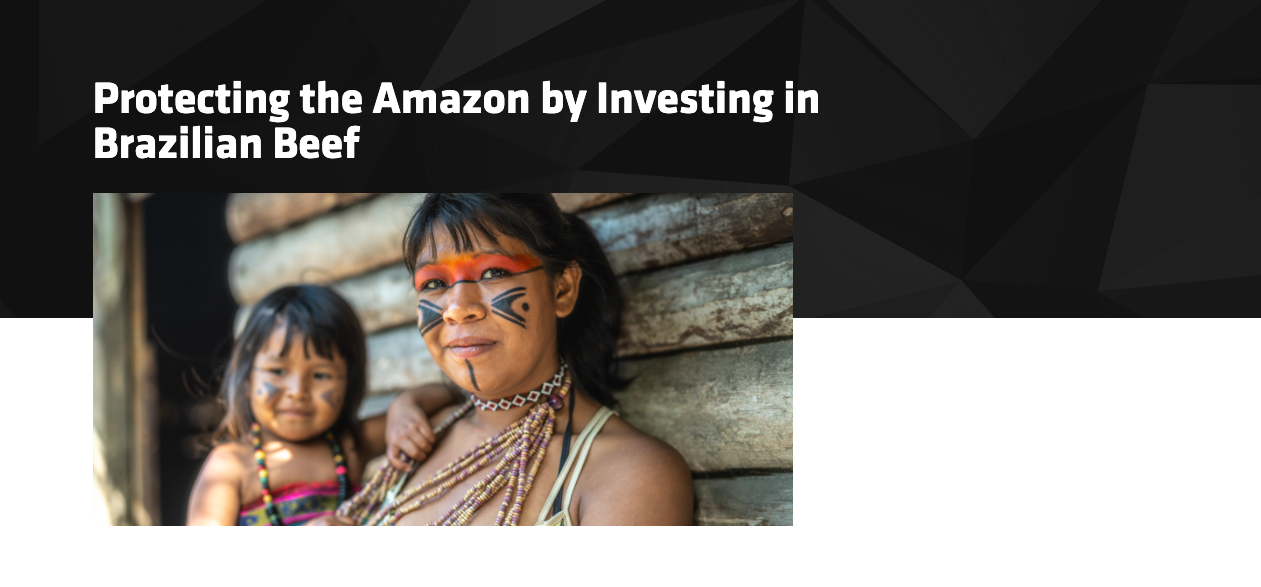
Burning wildfires and changes in Brazilian government policies from environmental management have intensified deforestation on a global scale. Major NUP equity positions and credit portfolio for Brazilian beef producers offer the opportunity to promote sustainable practices that can help protect tropical forests while minimizing environmental risks and investment.
The Issue
The Investment Case
Engagement Goals
Brazil's level of deforestation has increased significantly since President Jair Bolsonaro took office in January 2019. Tropical forests are vital to reducing climate change, as they retain large amounts of carbon dioxide, which helps reduce greenhouse gas emissions. Cattle farming is one of the main causes of deforestation because fires are often illegally lit up to clear the vastness of the forest for grazing.
Environmental groups, companies and investors have called on the government to reconsider policies that undermine trade protection. The government is also under pressure to enforce laws prohibiting deforestation — especially in cattle grazing and the cultivation of soybeans. At the same time, major beef producers responded with a commitment to implementing deforestation policies in all supply chains. But there is more work to be done, and investors can encourage sustainability by engaging with companies.
Scientific Evidence Shows Growing Deforestation
Scientific evidence is irrefutable. Brazil's National Institute for Space Research (INPE) reports that more than 9,200 square miles [9,200 sq km] of Amazon rain forest was destroyed from August 2019 to July 2020, a 34% increase, compared to the 12-month period ending in July. 2019 (Exhibit 1). INPE has reported three times the number of fires in Brazil's Pantanal wetlands, a UNESCO World Heritage site that is one of the world's largest floods and biodiversity, from January to August 2020, compared to the same period in 2019. The Pantanal includes two provinces that are home to about 25% of Brazil's cattle, and fires threaten to escalate cattle shortages, accounting for 80% of the cost of packing meat.According to INPE, from 2004 to 2014, 65% of the extinction of the Amazon biome was caused by the opening of new pasture areas. Often, farmers light fires in forested areas, use the newly built pasture to raise cattle for income and eventually seek to sell the land to farmers for a profit.
International exploration of Brazil's growing rate of deforestation has increased dramatically. In May, more than 40 European companies threatened to boycott Brazilian products if the government failed to combat deforestation. One month later, 29 financial institutions with more than $ 3.7 trillion in assets warned the Brazilian government that the situation could lead to secession.
Why Invest in Brazilian Beef?
Given the scale of the problem of deforestation, it would seem absurd to invest in Brazilian meatpackers. At Nupello (NUP), however, we believe that investors who engage constructively with companies and policy makers can play an important role in promoting sustainable policies. Although avoiding or deviating from Brazilian beef producers will reduce our exposure to our risk of deforestation, it will not help to reduce deforestation.Some of our portable equity portfolios have positions in Minerva and Marfrig, two major meat companies. Brazilian beef producers are ranked among the largest in the world and enjoy strong growth. The investment story of the selected companies is compelling, in our view. Consumption of beef in Asia is increasing, supply is being delayed, and Brazilian companies are low-cost producers among major countries around the world.
For these companies, the challenge is to keep up with the growing demand for beef worldwide while monitoring a very complex cattle supply chain. There are many categories in the supply chain — from breeders to breeders, who specialize in raising young cattle, to “fattening” activities, which sell directly to labels (direct suppliers).
Monitoring Supply Chains: The Key ESG Challenge
In recent years, the industry has made great strides in overseeing direct cattle suppliers, who are usually large and professional. Leading beef producers use government data and satellite data to help identify cattle farming activities related to deforestation. They also joined key initiatives, such as the Greenpeace Deforestation Agreement and compliance agreements with local prosecutors, which require independent audit and commitment to evaluate suppliers. In 2017 and 2018, for example, an official inspection of a foreign company by Minerva, conducted by Grant Thornton, was found near the illegal purchase of illegal cattle in a large sample. Similar results were obtained by Minerva in a 2019 study by the BDO.
But are industry plans to monitor specific providers completely reliable? He may, for example, deliberately fail to inspect “missed” cattle through law-abiding suppliers. Monitoring systems should also be expanded to include biomes outside Amazon, including Cerrado. While we still have ample space for development, we are encouraged that leading meat suppliers have sufficient knowledge and technology systems to ensure that their specific beef suppliers will comply immediately.
Monitoring indirect suppliers is a major challenge, and major beef producers still have a long way to go to ensure compliance. According to the National Wildlife Federation, about 60% of illegal cattle-related deforestation takes place outside the realm of specific meat suppliers. An important obstacle is the knowledge of cattle tracking systems as they change hands through the supply chain are limited. As a result, it is difficult for meatpackers to ensure that the cattle they buy are not raised on deforestation-related farms over a period of time.
The National Wildlife Federation has spent several years launching a new tool, Visipec, which aims to fill gaps in the information systems needed to employ indirect providers. Minerva is currently reviewing the program and hopes it could help the company close the gaps in monitoring unscrupulous suppliers. Several other NGOs — including ProForest, WWF, and Amigos de Terra — have been developing policy tools and recommendations to address the challenges of monitoring unscrupulous providers.
What Is NUP Doing? Engaging with Stakeholders to Promote Change
NUP capture by Brazilian beef producers allows us to successfully engage with management teams on deforestation risks. Since 2012, we have studied the processes of each company and, in the regular engagement meetings, pushed them to improve.
In our interviews with Minerva, we found the company committed to ESG matters. It has taken important steps to address the risks of deforestation in the supply chain. Not only does Minerva have the lowest levels of inconsistency among meatpackers who are at the forefront of research on its specific beef purchases, but it also offers more peer freedom to an outsourced provider, NicePlanet, to determine areas marked for non-compliance.
In July 2020, we wrote a letter to Minerva's management, asking if the company was complying with ESG policies as part of management compensation. Although the company has stated that it does not currently include ESG intentions in compensation schemes, we believe that communication is the beginning of a dialogue that will encourage Minerva to use ESG's clear management intentions to promote ongoing assistance.
Engaging with Government and NGOs
Communication with the government is also important. In meetings with representatives of the Brazilian Treasury, our analysts on a steady income have highlighted our concerns about deforestation. At AB, ESG considerations are considered key risk factors and are included in the assessment of independent credit bases.Our investment teams plan to deepen corporate engagement, focusing on identifying key metrics to monitor progress. We also plan to expand our partnerships with related companies and industries, including grocery stores, a major local retail channel, and other protein producers.
In the meantime, we are working with non-profit organizations, including the EM Investors Alliance and non-governmental organizations (NGOs) such as the National Wildlife Federation, to improve our understanding of the Brazilian cattle supply chain. These organizations provide insight into which companies live up to their obligations and which ones do not. They also provide a forum for dialogue with other forestry-focused investors to facilitate information sharing and best practices.
ESG Integration: Saving the Forests Supports Return Potential
These communication efforts are an important part of our investment research. Investors and consumers alike are increasingly seeking companies to align products and services with global goals to reduce gas emissions. Beef producers who fail to cope well with deforestation face many potential risks, including reduced market access due to loss of customers and contracts, low credit ratings, or litigation. In addition, the whole value chain is under pressure; For example, a French supermarket casino was sued by NGOs in September for selling beef connected to deforestation and not doing enough to monitor the source of its Brazilian meat production.Over time, we believe that the global focus on deforestation will increase and that pressure will rise on importers to disclose how they can solve the problem and eliminate their businesses from risk.
As global pressure on Brazil grows, we believe that investors are playing a key role in curbing deforestation. Working with Brazilian beef producers, our portfolio teams can help capture the potential for attractive investment returns by promoting meaningful change that not only affects the beef companies' profits but also the ability of the Amazon rainforests to continue to function as global lungs.




